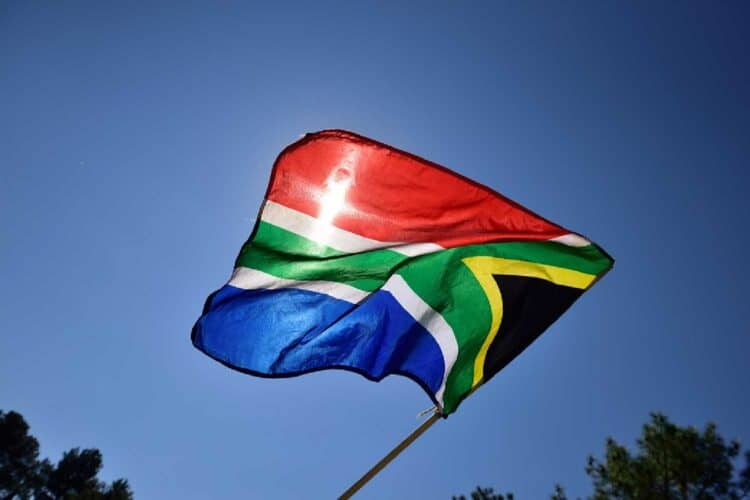Saturday, 27 April 2024, marks the 30th anniversary of South Africa’s first democratic elections—a day that heralded the end of apartheid and the beginning of a new era based on equality and comprehensive human rights.
What is the historical significance of Freedom Day?
Freedom Day in South Africa is a profound commemoration of the first elections in 1994 that were open to citizens of all races over the age of 18.
It is a reminder of a past marred by segregation and oppression and celebrates the hope for a future of equality and justice.
Nelson Mandela’s words on the first commemoration of Freedom Day resonate deeply, emphasising the emotional and transformative journey of the nation from a “terrible past” towards a “bright future.”
“As a new dawn ushered in this day, the 27th of April 1994, few of us could suppress the welling of emotion, as we were reminded of the terrible past from which we come as a nation; the great possibilities that we now have; and the bright future that beckons us. And so we assemble here today, and in other parts of the country, to mark a historic day in the life of our nation. Wherever South Africans are across the globe, our hearts beat as one, as we renew our common loyalty to our country and our commitment to its future,” he said.
How has South Africa progressed since 1994?
Since the historic elections of 1994, South Africa has made notable strides in eradicating the legacy of apartheid and establishing a society grounded in democratic values and equality.
The country has successfully set up a robust constitutional democracy, evident in its regular hosting of free and fair elections, which are seen as a cornerstone of its democratic framework.
These elections have facilitated a peaceful transition of power and the maintenance of political stability, which are significant achievements given the volatile histories of many transitioning democracies.
In terms of social equity, South Africa has implemented numerous policies aimed at improving access to essential services for historically disadvantaged communities.
Significant strides have been made in sectors such as education and healthcare, with the government focusing on policies that ensure broader access to quality education and health services.
These efforts are crucial in levelling the playing field and improving the life chances of millions of South Africans who, under apartheid, were systematically denied these fundamental rights.
However, the journey has not been without its challenges.
Economic disparities remain a significant concern, with South Africa ranking as one of the world’s most unequal societies.
The high rates of unemployment, particularly among the youth, exacerbate these inequalities and pose a severe challenge to the country’s socio-economic stability.
Moreover, the ongoing issues of corruption within various levels of government have eroded public trust and hampered effective governance.
Freedom Day in 2024: What challenges does South Africa still face?
While South Africa has made commendable strides in various sectors since 1994, the nation continues to grapple with significant socio-economic challenges that underline the disparity between constitutional promises and the lived realities of many citizens.
The statistical data from recent surveys and economic reports provide a vivid illustration of these ongoing issues.
Economic inequality and household expenditure vs Employment
Economic disparities remain profound, with a significant portion of the population still living in poverty.
This is exacerbated by the rising living costs, which compared to the average household income, paint a worrying picture.
According to a 2015 Stats SA Living Conditions Survey, for example, the average South African household spent about R103,293 annually, with housing, water, electricity, gas, and other fuels consuming the largest portion of household expenditure at 32.6%.
This indicates that basic living costs continue to consume a significant share of household budgets, particularly impacting lower-income families.
Conversely, food expenditure, which is more critical for lower-income households, accounted for 12.9% of the total expenditure.
This paints a scenario where the poorest households spend a disproportionately higher percentage of their income on food compared to wealthier households, an illustration of the regressive nature of living costs in the country.
The employment landscape also presents challenges.
The most recent Quarterly Employment Statistics report from December 2023 showed a decrease in total employment by 1.8% quarter-on-quarter, led by significant declines in community services, construction, and manufacturing sectors.
This reduction in employment opportunities further exacerbates the economic divide and hinders efforts towards achieving economic stability and growth.
Health and Education
While access to services has improved, the quality and outcomes vary widely across different demographic groups.
For example, health statistics among the elderly indicate persistent issues with non-communicable diseases, with a significant proportion suffering from conditions like hypertension and diabetes.
These health challenges are more pronounced in non-urban areas and among specific population groups, another indication of broader disparities in health access and outcomes.
The confluence of these factors—high living costs, unemployment, and uneven access to quality health care and education—paints a complex picture of a nation still in the process of realising the full freedoms envisaged three decades ago.
The upcoming general elections are a critical moment for South Africa to address these challenges.
They offer an opportunity for voters to reflect on the effectiveness of their leaders and the real progress towards the freedoms promised in 1994.






